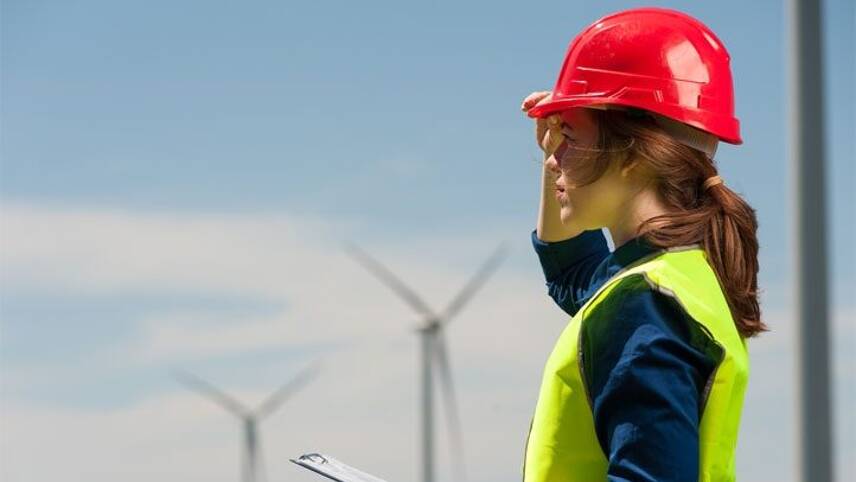Register for free and continue reading
Join our growing army of changemakers and get unlimited access to our premium content

The scenario would also create an additional 279,000 UK jobs, bringing the total clean energy jobs in the country to more than 650,000 clean energy jobs
The Big Four Firm has today (29 November) published a new Green Jobs Barometer – a digital tool enabling users to track job creation and losses in sectors most affected by the UK’s net-zero transition, such as energy and transport. It tracks progress to date as well as the likely outcomes of policy decisions.
According to the barometer, just 1.2% of the jobs advertised in the UK between July 2020 and July 2021 could be defined as “green”. This is equivalent to 124,600 jobs. Not all roles were new.
PwC is warning that, at this pace, the UK will not achieve its overarching ambition to host two million green roles by the end of the decade.
The Barometer also highlights how, at present, some regions are seeing far greater levels of green job creation and levels of related economic and social benefits than others. London and Scotland are the top performers in both of these areas. The East Midlands also fared well. At the other end of the spectrum, the Barometer warns that Northern Ireland, Wales, Yorkshire and the Humber will all miss out without further concerted action from policymakers and the private sector.
Some of the worst-supported regions are also those that could be among the worst affected by job losses in high-carbon sectors. PwC is warning that between 5% and 15% of adults across the UK could lose their job due to the low-carbon transition. It is emphasising how a well-managed low-carbon transition could more than offset these losses, with each new green job in the energy sector generating, on average, a further six roles.
PwC’s chairman and senior partner Kevin Ellis said: “Jobs are getting greener and this is cause for optimism, but evidence is needed on the level and distribution of these opportunities. Left unchecked, green employment will grow in the most fertile spots, but not necessarily where they’re needed most.
“By acting now, we have a massive opportunity to rebalance the economy and ensure a fair transition.”
PwC’s head of regions Carl Sizer added: “It is incumbent on all of us to ensure that a reduction in economic opportunity is not the legacy of the green transition. Green jobs must not become elite jobs.”
Definition dilemma
As well as recommending targeted regulatory support and investment to align with the Government’s net-zero and levelling up agenda, PwC is urging the formalisation of a ‘green jobs’ definition through the Barometer.
“It is still unclear what is meant by a green job and/or how progress is going to be monitored,” PwC stated, echoing the concerns recently raised by MPs on the Environmental Audit Committee (EAC).
The Barometer defines a green job as a role which “seeks to either produce or provide environmentally friendly products and services, or adapt work processes to become more environmentally friendly or use fewer natural resources.”
Renewables research
In related news, consultancy HKA has published a report assessing the challenges facing the renewable energy generation project pipeline, highlighting the extent of the risk associated with the skills gap.
The report reveals that one-third of the projects delivered this year were impacted negatively by a lack of skills and experience. This was the seventh most common cause of clause and disputes globally, but the third most common in Europe, pointing to a more localised skills challenge.
HKA is warning that this trend means that claims are now, in general, higher for renewable projects than for fossil fuels – something that will need to be rectified to achieve a smoother energy transition.
The report also stipulates that project developers may need to take greater action on climate adaptation. One-tenth of projects delivered this year were affected by exceptional cases of adverse weather.
Sarah George


Please login or Register to leave a comment.